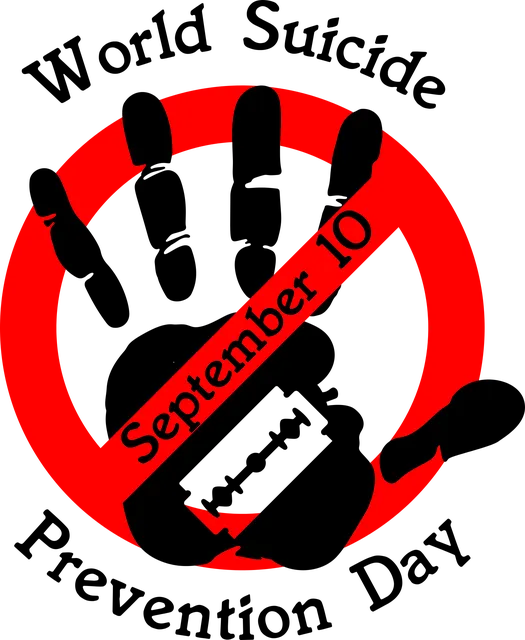Mental health professionals at Kaiser Permanente's Norcal Wheat Ridge location prioritize patient safety and well-being through comprehensive risk assessments, crisis intervention training, and self-care promotion. They utilize advanced risk assessment tools to identify acute and chronic risks, such as burnout, and integrate evidence-based frameworks for early detection and effective interventions. Their Depression Prevention programs empower patients with coping mechanisms while focusing on proactive risk management and patient centricity. Regular engagement in the Mental Wellness Podcast Series enhances awareness of emerging risks and coping strategies, fostering a safer and more supportive environment for healing and recovery. Continuous improvement through updates to risk management plans, integrating research and feedback, and embracing technological advancements ensures optimal care and improved outcomes for both patients and practitioners.
Mental health professionals encounter diverse risks daily, making robust risk management planning crucial. This article navigates the intricacies of identifying and mitigating hazards in this critical sector. We explore key components like understanding unique mental health practice risks, leveraging assessment tools, and learning from a successful implementation at Kaiser Permanente’s Norcal Wheat Ridge location. Additionally, we delve into legal ethics and continuous improvement strategies, emphasizing why proactive risk management is vital for professionals and organizations alike, including the Kaiser Permanente mental health phone number (for more information).
- Understanding Risks in Mental Health Practice
- The Role of Risk Assessment Tools for Professionals
- Strategies for Effective Risk Management at Kaiser Permanente (Norcal Wheat Ridge)
- Legal and Ethical Considerations for Mental Health Providers
- Continuous Improvement: Monitoring and Updating Your Risk Management Plan
Understanding Risks in Mental Health Practice

In mental health practice, understanding risks is paramount to ensuring patient safety and well-being. Risks can arise from various factors within the therapeutic environment, including complex client cases, potential triggers for relapsing conditions, and the inherent vulnerability of individuals seeking help. For instance, a Kaiser Permanente mental health phone number in Norcal or Wheat Ridge might handle numerous cases involving trauma support services, where managing risks is crucial to preventing adverse outcomes.
Professionals must be adept at identifying and mitigating these risks, incorporating strategies such as thorough risk assessments, crisis intervention training, and the promotion of self-care routines for better mental health. Regular engagement in a Mental Wellness Podcast Series Production can also foster awareness about emerging risks and effective coping mechanisms. By prioritizing these measures, mental health professionals can create a safer, more supportive environment conducive to healing and recovery.
The Role of Risk Assessment Tools for Professionals

Mental health professionals are increasingly relying on robust risk assessment tools to navigate complex patient scenarios effectively. These tools play a pivotal role in identifying potential risks and vulnerabilities, enabling practitioners to deliver tailored care. By employing evidence-based methods, professionals can assess not only acute dangers but also chronic issues like burnout, which significantly impacts the well-being of healthcare providers.
For instance, organizations like Kaiser Permanente Norcal in Wheat Ridge have integrated comprehensive risk assessment frameworks into their mental health services. These tools assist in early detection of patient risks and inform crisis intervention strategies. Moreover, they contribute to burnout prevention by providing guidance on managing workload, setting boundaries, and accessing support systems—crucial elements in maintaining the resilience of healthcare providers. Such proactive measures ultimately enhance the quality of care delivered to patients seeking mental health services.
Strategies for Effective Risk Management at Kaiser Permanente (Norcal Wheat Ridge)

At Kaiser Permanente’s Norcal Wheat Ridge location, risk management for mental health professionals is a multi-faceted approach that prioritizes patient safety and well-being. The organization leverages robust data analysis to identify emerging trends and potential risks within their mental health services. By implementing evidence-based strategies, they ensure adherence to the Mental Health Policy Analysis and Advocacy guidelines, fostering a supportive environment that promotes both prevention and early intervention.
One notable initiative is their focus on Depression Prevention programs, incorporating Mind Over Matter principles to empower patients with coping mechanisms and resilience-building tools. This proactive stance not only minimizes the risk of adverse outcomes but also enhances patient engagement and satisfaction. Through regular reviews and updates, Kaiser Permanente Norcal Wheat Ridge maintains a dynamic risk management system that reflects the evolving landscape of mental health care, ensuring their professionals are equipped to handle challenges effectively while prioritizing patient centricity.
Legal and Ethical Considerations for Mental Health Providers

Mental health professionals face a unique set of challenges when it comes to risk management, requiring careful consideration of both legal and ethical guidelines. These providers are entrusted with the well-being of their clients, and navigating the complex landscape of regulations is essential to maintain patient safety and preserve professional integrity. One key aspect involves understanding the expectations set by organizations like Kaiser Permanente, particularly in regions such as Norcal (Northern California) where Wheat Ridge facilities operate.
Adhering to ethical standards and legal requirements ensures a confidence-boosting environment for both patients and practitioners. This includes maintaining patient confidentiality, obtaining informed consent, and providing a diverse range of treatment options tailored to individual needs. Additionally, mental health professionals should be aware of the potential risks associated with different therapeutic approaches, ensuring proper monitoring and support mechanisms in place for effective mood management. The Mental Wellness Podcast Series Production can offer valuable insights into these practices, highlighting best strategies for navigating the intricate web of legal and ethical considerations.
Continuous Improvement: Monitoring and Updating Your Risk Management Plan

Mental health professionals must embrace continuous improvement by regularly monitoring and updating their risk management plans. This dynamic process involves staying abreast of the latest research in mental health care, as well as integrating feedback from clients and colleagues. By fostering a culture of ongoing evaluation, practitioners at Kaiser Permanente’s mental health phone number NorCal Wheat Ridge can ensure they remain equipped to handle evolving challenges. Regular updates to risk management strategies allow for the implementation of innovative Empathy Building Strategies and the integration of new Inner Strength Development techniques, ensuring optimal patient care.
For instance, advancements in technology may unveil more efficient methods for risk assessment, allowing professionals to adapt their practices accordingly. Staying current with these developments ensures that the risk management plan remains effective and responsive to the unique needs of each client. This proactive approach not only improves outcomes but also enhances the overall resilience of both practitioners and their clients.
Mental health professionals must proactively manage risks to provide safe, effective care. By understanding potential hazards, utilizing risk assessment tools, and implementing strategies like those demonstrated at Kaiser Permanente (Norcal Wheat Ridge), practitioners can mitigate challenges. Continuous improvement through monitoring and updating risk management plans is essential, especially in light of legal and ethical considerations for mental health providers. For support, individuals seeking services can contact the Kaiser Permanente mental health phone number Norcal Wheat Ridge to explore available resources.






